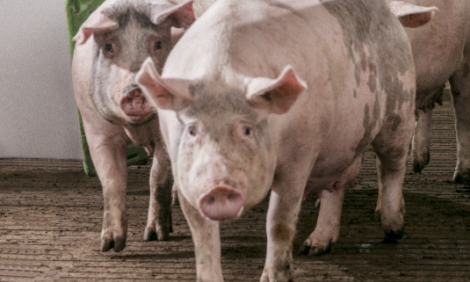



OFC: How Can Agriculture Rise to Challenge of Climate Change?
UK - Farmers need smarter use of fertiliser and smarter feeding and breeding of ruminant animals in their bid to mitigate and reduce climate change, delegates to the Oxford Farming Conference (OFC) have heard.This was one of the key messages from Lord John Krebs, principal of Jesus College Oxford and former chairman of the Food Standards Agency to the Oxford Farming Conference in the Frank Parkinson Lecture.
In his lecture on 'Climate Change – Challenge or Opportunity', Lord Krebs said that while there was no doubt that the climate is changing, the situation will offer new opportunities for farmers in the UK.
He said that 2014 is going to be the warmest year on record and he said there can be little doubt that carbon emissions are rising and climate change is directly the result of human activity.
“We can be confident that the climate will change,” he said.
He added that the change is more than global warming, for the UK it is also a question of rising sea levels, floods and summer heat waves.
He said that there is a conundrum in that globally more food will need to be produced to meet the demands of a rising population, but at the same time farmers and agriculture needs to cut carbon emissions.
He said that agriculture has to play its part in mitigating the effect of climate change and to meet the challenge agriculture and farming need to both mitigate and adapt.
He said there is a commitment to reduce emissions by 80 per cent by 2050 and while agricultural producers at present produce about 10 per cent of global emissions, if nothing was done and other sectors such as energy and transport reduced their emissions by 2050 agriculture's proportion of the greenhouse gas (GHG) produced would be 30 per cent.
He said that while emissions from farms in the UK appear to have reduced since the 1990s, this has not been through active measures to cut them. The reductions have come through changes in the Common Agricultural Policy and also through a reduction in livestock production.
He said that the carbon footprint of production of meat from ruminants – beef and lamb – had the highest emissions in the meat sector, although every sector in farming including poultry and crop production result in GHG emissions.
Lord Krebs said that cutting production would also have little effect as consumption will still be growing and the problem of emissions will be moved elsewhere.
Organic production also might not be an answer as this requires more land use than traditional production methods and increases the carbon footprint of production.
Lord Krebs said that the latest predictions that temperatures could rise by two degrees or more by the end of the century for the UK will mean the risk of too much water with floods and then also potential for drought in some areas.
These changes could offer opportunities if agriculture adapts to grow crops that are now traditional in other reasons of the world.
He said the climate in the UK could be benign compared to other regions such as the Mediterranean basin.
He said that the major issue will be the availability of fresh water for farming and areas of the UK could become very dry – in particular the South East, East Anglia and Humberside.
To compensate for the changes farming needs to thing long term rather than allowing it to creep up and it needs to look to the production of smarter crops and the use of smarter irrigation systems as well as soil management.
Lord Krebs called for more publicly funded research and development and the use of science to mitigate the effects of climate change
He said that the last green revolution came at a price and the next revolution in agriculture needs to be smarter and more considered using measures such as GM crops alongside systems of minimum tillage.
He said that the farming sector also needs to harness the power of computers and technology and tap into “big data” and use ecological knowledge to make space for nature.






